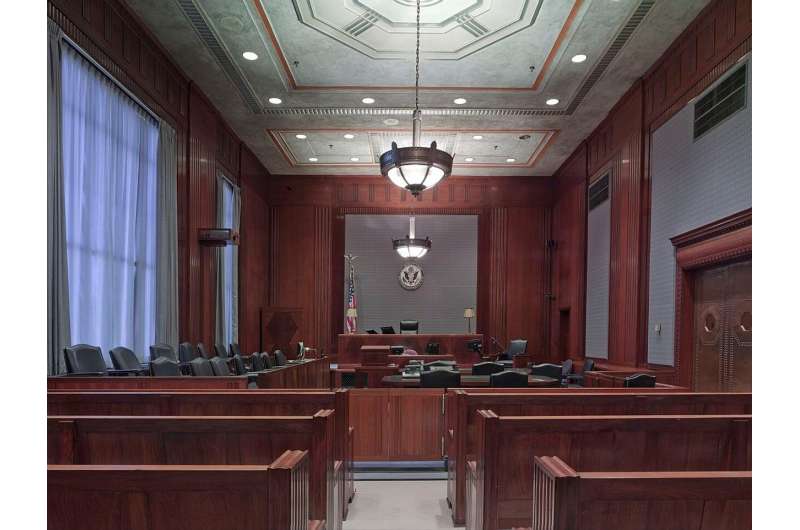Credit: CC0 Public Domain
We decided to examine the state of prosecutor funding and caseloads after recent local debates on the issue. Prosecutors contend they need more staff to ensure due process and increased diversion options and others are concerned that doing so would reverse justice reform efforts, under the assumption that more prosecutors equate to more convictions. As a result, we, the Center for Justice Research (CJR), have released a research brief comparing the budgets, caseloads and staffing levels of the country's largest county prosecutor offices. Below are some of the study's results, which highlight the challenges faced by prosecutors, denotes the concerns of policy makers, and recognizes the trepidations of justice reformers.
Prosecutor caseloads should not be examined in a vacuum. They must be understood within the context of comparative analyses. How do they compare to other, equally situated prosecutor offices? Our findings extend the positions of the experts in the field. Prosecutors can only be assessed if and when they have the optimal level of resources with the proper controls to ensure that they don't erode the gains of the current justice reform movement. Any prosecutor additions must be aligned with agreements not to further exacerbate racial/ethnic or class inequities.
The impact of large workloads and inadequate funding create an obvious problem for prosecutors and the community they serve. Research demonstrates that overworked prosecutors increase the likelihood of extended case processing time, error, plea bargains, stress-related burnout and turnover. Significant trial delays increases in-case processing time, and excessive use of plea bargains are just some of the consequences Americans must face due to overworked prosecutors. The minority community bears the brunt of these consequences as Blacks and Hispanics are more likely to face conviction due to a criminal justice system that often disparages those unable to afford effective representation.
Despite having 2,400 district attorneys in this country, no one has sought to determine the average number of hours it takes to process a case through the district attorney's office in the last 40 years. Even fewer have conducted a simple comparison of prosecutor budgets, caseloads, and staff. Because of the traditional lack of exposure to prosecutor data and as a result of the recent dismantling of this convention, we took upon this challenge and put forth some praxised recommendations.
Here, at the Center for Justice Research, we aim to create a more equitable criminal justice system. By proposing a few formulas that can put in place caseload standards for district attorney offices, we are better able to assist this widespread dilemma. One solution is to establish a caseload determination matrix by which prosecutors can determine their appropriate caseload, respective of local nuances. Simultaneously, there is a need for more collaborative approaches to decision-making protocols and a commitment to the continued use of pre-charge diversion programs.
Prosecutors, in this era of 'mass-decarceration', must ensure that they exercise their unbridled discretion in an unbiased manner. At the same time, society cannot afford for prosecutors to be understaffed, overworked, underfunded or misaligned with the least prohibitive, most effective approaches.
By finding a balance between justice reform-oriented prosecutors and protectors of public safety, Harris County could transform its criminal justice system into a more equitable design and serve as a model for the body politic.
It's not just a matter of hiring more prosecutors, but DA's offices also must consider the costs associated with the additional courtroom work group that will need to be included in the augmentations. At the same time, critics of this approach must provide substantiated alternatives after comparing equally situated prosecutor offices.
At the end of the day, reducing prosecutor caseloads is not just about funding, but about ensuring that constitutional protections are afforded to everyone.
More information: Read the report here: centerforjusticeresearch.org/prosecutor_caseload/
Provided by Center for Justice Research at Texas Southern University






















